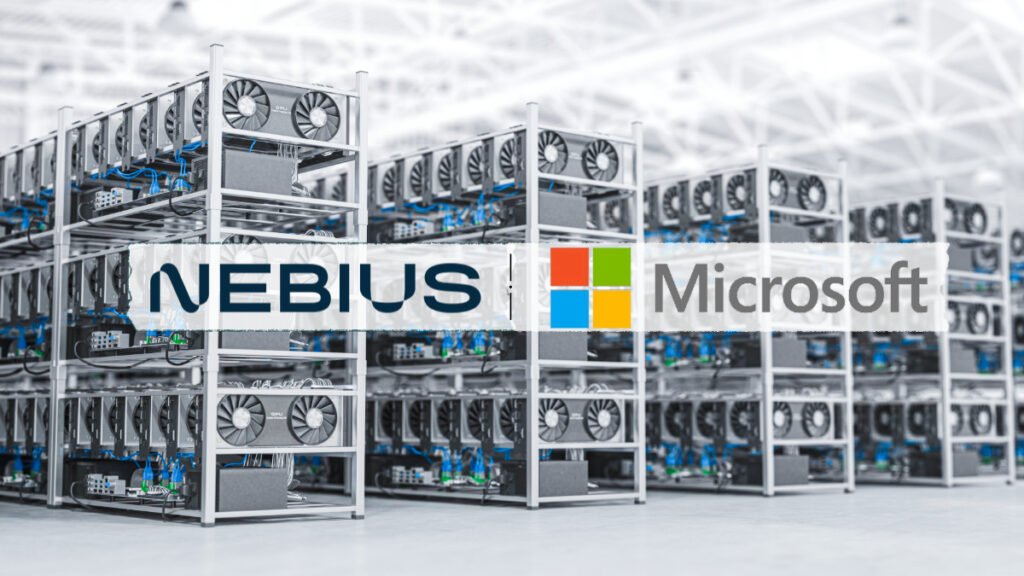With Decentralized AI and Tokenized Ownership, We Can Fight ‘The Six’

With Decentralized AI and Tokenized Ownership, We Can Fight ‘The Six’
Orthodox venture capital will never provide the resources for decentralized AI to take on Microsoft, Alphabet, Apple, et al. The only way is to supplant equity financing with user-owned, token-based systems, says Michael J. Casey, Chairman of The Decentralized AI Society.
The past two days’ share price moves for the six most heavily capitalized companies in the U.S. tell you all you need to know about why we must urgently decentralize the artificial intelligence economy.
The first headlines were that the third-quarter profits and revenue from Microsoft, Alphabet, Apple, Meta and Amazon all beat or met expectations. Yet, with the exception of Amazon’s on Friday, Big Tech’s shares all sold off in response to their earnings announcements, dragging down with them chip-maker Nvidia, the sixth member of the group, whose quarterly reporting is scheduled a month later.
By signing up, you will receive emails about CoinDesk products and you agree to our terms of use and privacy policy.
What spooked investors were some daunting capital expenditure numbers on AI computing power and model development. Alphabet, for one, said it did $13 billion in capex last quarter and expects to do the same in this one while Meta upped its full-year projected spending to $38-40 billion. The giants are in a spending war as each tries to outrace the others toward AI supremacy. Each one of them stands to lose profit margins if it gets out of control.
Let’s be clear: between them, The Six are booking $1.8 trillion in annual revenues, a number that would put their combined inflows in 10th place of global country rankings if we viewed them as a proxy for national GDP – just behind the gross output of Brazil’s 220 million people. Meanwhile, The Six have a combined market capitalization of $15 trillion, capturing an astounding one third of the entire S&P 500 index. Despite – or perhaps because of – this unprecedented scorecard, these companies are relentlessly competing for world domination. Doing what great American companies have always done, they’re unleashing a competitive instinct that, in a normal capitalist economy of diversified goods and services, is the core driver of technological progress.
So, don’t worry about The Six. Worry about us. Because our problem amid the dizzying advance of AI is definitely not one of a shortfall in technological progress. It’s that this particular form of technological progress comes with risks to human autonomy and safety. And to mitigate them, the question of who controls AI’s development and whether their incentives are aligned with the broadest base of humanity is fundamental.
Just as was the case for Alphabet’s Google, Meta’s Facebook and Amazon’s marketplace, the development of these six companies’ large language models (LLMs) and other AI machinery is occurring within closed, black-box systems.They’ve ingested the troves of data we all unwittingly poured into internet sites, and have built highly complex codebases into which no one has visibility. Between them, they dominate all layers of the AI stack: the storage (Amazon Web Services), the chips for computation (Nvidia), the AI models (Microsoft, with its investment in Open AI), the data (Alphabet and Meta) and the devices we use to interact with AI services (Apple). They might be competing with each other, but they form a vertically diversified oligopoly. Or rather, given the undeniable power that their technology can wield over people’s lives, they’re an oligarchy. Indeed, the secrecy around the means by which they exercise that power is characteristic of most oligarchical dictatorships.
Toward the latter phase of the Web2 era, people eventually came to understand Bruce Schneier’s memorable observation that we are not the internet platforms’ customers; we are their products. With that awareness, we’re now also finally opening our eyes to how these companies have long been incentivized to modify people’s behavior in unhealthy ways to maximize shareholder returns. It is no longer controversial to talk of the psychological harm done by the algorithms of Facebook, YouTube, Tik Tok and their ilk, which were blatantly designed to exploit dopamine releases to encourage continued, addictive engagement.
When Frank McCourt and I published Our Biggest Fight in March 2024, we were overwhelmed by parents’ horror stories of the harm social media had done to their kids. And then a Harris Poll coordinated by NYU Professor Johathan Haidt found that young people are just as concerned: nearly half of Gen Z wishes that TikTok and X (Twitter) never existed, even as 83% of the same cohort said they spend four hours a day or more on social media.
So, if we now know of the harms, why on earth would we extend the same oligopolistic control structure into the AI era? AI will put the Web2 oligopoly on steroids.
This is why I believe the creation of distributed, collectively owned open-source AI is a vitally important use case for Web3 and blockchain technology. It’s the only way to avoid the problem of misaligned incentives.
Sure, there are technical challenges, such as the latency that, for now, makes distributed machine learning inefficient, the capacity limits of on-chain data, or the privacy risks inherent to public blockchains. But innovators are already hard at work on outside-the-box solutions to these problems, motivated by the huge economic and reputational payoff promised by overcoming them. And when they do, the inherent information advantages enjoyed by open systems over closed systems will give decentralized AI a fighting chance. Achieve that, and “DeAI” will represent not only the right moral path but also the economic winner.
Here’s the rub: time is not on our side. And the fight is heavily lopsided. As cited above, The Six have an unprecedented $15 trillion war chest. In the 2000s, Facebook and Google learned that their high-value share prices gave them a currency with which to relentlessly acquire startups that could either enhance or threaten their dominance. Now, The Six have even greater capacity to buy up and integrate whatever breakthroughs in AI are coming, be it in independent AI agents or more efficient systems of compute. Their financial clout means that the most important innovations, those that offer the best hope for a more decentralized AI economy, are at risk of being subsumed into their centralized system. Remember, they’re competing with each other and are incentivized to do whatever it takes to win.
To fight their centralized approach, we must flip the paradigm. Orthodox venture capital will never provide anywhere near enough resources for decentralized competitors to take on the big guys. The only way is to supplant equity financing models with full user-owned, token-based systems. In the future, when your home devices provide the compute and deliver your privacy-preserved data into open-source models that are proven to act in your interests, you will earn tokens for that work. And, with that currency, you will pay for all the cool services delivered by your personal AI agent. It’s a new, distributed financing and payments system for a new, decentralized AI economy. It is the only way.
Yet, to succeed, the crypto and blockchain industry has to reimagine itself. If startup founders see DeAI merely as a new source of get-rich-quick token-pump opportunities, or if the leaders of the Layer 1 platforms now turning to the field are fixated more on applications that temporarily drive up the dollar value of their tribe’s cryptocurrency rather than on those that address real, economy-wide problems, this movement will fail. To win this fight, this industry must become more interoperable. It must become more collaborative.
This is not to say we should squash the competitive instincts that are vital to innovation. But it is to acknowledge a need for better cross-industry organization. Through collaborative bodies such as the new Decentralized AI Society, different stakeholders can work with each other to advance common interests around standards, reference architectures, taxonomies, policy objectives and open-source, cross-chain protocols that everyone can use regardless of the token they hold. We’re not building to pump our bags or take our token “to the moon.” We’re building to create a new decentralized AI economy for the benefit of all humanity.
Come join the fight.
Note: The views expressed in this column are those of the author and do not necessarily reflect those of CoinDesk, Inc. or its owners and affiliates.
Note: The views expressed in this column are those of the author and do not necessarily reflect those of CoinDesk, Inc. or its owners and affiliates.
Michael J. Casey
Michael J. Casey is Chairman of The Decentralized AI Society, former Chief Content Officer at CoinDesk and co-author of Our Biggest Fight: Reclaiming Liberty, Humanity, and Dignity in the Digital Age. Previously, Casey was the CEO of Streambed Media, a company he cofounded to develop provenance data for digital content. He was also a senior advisor at MIT Media Labs’s Digital Currency Initiative and a senior lecturer at MIT Sloan School of Management. Prior to joining MIT, Casey spent 18 years at The Wall Street Journal, where his last position was as a senior columnist covering global economic affairs.
Casey has authored five books, including “The Age of Cryptocurrency: How Bitcoin and Digital Money are Challenging the Global Economic Order” and “The Truth Machine: The Blockchain and the Future of Everything,” both co-authored with Paul Vigna.
Upon joining CoinDesk full time, Casey resigned from a variety of paid advisory positions. He maintains unpaid posts as an advisor to not-for-profit organizations, including MIT Media Lab’s Digital Currency Initiative and The Deep Trust Alliance. He is a shareholder and non-executive chairman of Streambed Media.
Casey owns bitcoin.
!–>
Read More
Be the first to write a comment.



